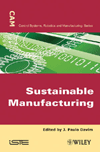WASHINGTON—The U.S. Department of Energy has awarded Sila Nanotechnologies $100 million to support the company’s new factory in Moses Lake, WA, and help Sila hire and train some 300 workers for the facility. It’s one of 21 projects that the DOE has funded to support domestic battery materials processing and manufacturing.
“It’s our mission to help move America away from being energy dependent and become a leader in the energy transformation,” says Gleb Yushin, Ph.D., the company’s chief technology officer and a faculty member in the Georgia Tech School of Materials Science and Engineering. “With this funding, Sila will deliver proven, clean energy technology and world-scale manufacturing to revitalize the industry and gain independence.”
Birthed from Yushin’s research on lithium-ion batteries, Sila manufactures next-generation materials and a silicon anode technology that boosts battery energy density by 20 percent. The silicon anodes are a drop-in replacement for graphite anodes in lithium-ion batteries. The new facility is projected to produce enough capacity to power 200,000 electric vehicles by 2026. Sila has inked a deal with Mercedes-Benz to use the company’s technology, starting with G-Class vehicles.
“This additional DOE funding will help us accelerate our goals of scaling automotive manufacturing. We’re now on track to begin production in the second half of 2024,” Yushin says. “We anticipate that this production expansion will lower the costs of manufacturing precisely engineered materials for the most advanced battery systems, primarily targeting electric vehicle applications.”
The DOE money comes on the heels of a fifth fundraising round in 2019 that brought in $170 million for Sila. In 2021, the company raised another $590 million, pushing its valuation to more than $3 billion. Yushin said the federal government’s support will help the nation lay the groundwork for an electrified future, which requires dramatically ramping up battery and battery materials factories.
“The costs and complexity to build them is very high, and most companies and financial organizations don’t want to make that investment until the demand is already there. At that point, it’s too late,” Yushin says. “Investments like the DOE’s battery manufacturing award ensure we allow companies involved with battery or battery supply chain production to catch up to the market demand and make the transition to the new energy storage era sooner.”




